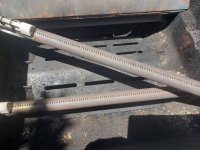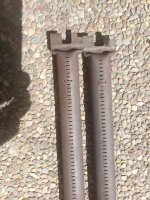Joe Anshien
TVWBB Honor Circle
While that may be true about the 90%, I do think it is the lack of NG outlets at the back of the homes (or whatever location the grill is located) and the expense of putting one in that is the reason. Our new house does not even have NG service. I had to contract my own propane service and have the builder get the plumber to put an outlet on the back porch and that was more than several hundred $$.I think the reason for low NG market penetration is I'll lay odds 90% of people have no clue a "gas" grill can even run on anything but a bottle.


